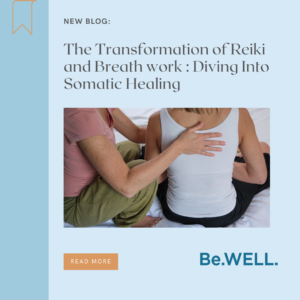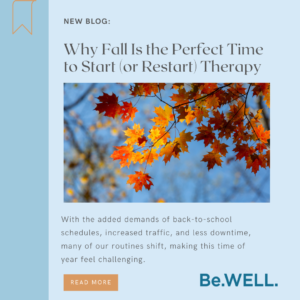When couples in NYC or Hoboken start preparing for marriage, most of the conversations are about the wedding, the venue, the flowers, the outfits, and the honeymoon. Those things are fun, but they aren’t the foundation of a lasting relationship. At BeWELL Psychotherapy, our couples therapy sessions in NYC and Hoboken often highlight how important it is to ask deeper questions before marriage.
“Marriage is more than a romantic commitment—it’s also a partnership that touches every part of your life, from how you handle conflict to how you manage finances,” says Divya Robin, LMHC, therapist at BeWELL. “Asking the right questions before you walk down the aisle isn’t unromantic, it’s an act of love. It’s how you make sure your relationship has the depth and alignment to last.”
Whether you’re engaged, thinking about getting engaged, or simply in a serious long-term relationship, these 10 questions can help you explore your values, expectations, and shared vision for the future before saying “I do.”
“Marriage is more than a romantic commitment—it’s also a partnership that touches every part of your life, from how you handle conflict to how you manage finances,” says Divya Robin, LMHC, therapist at BeWELL in NYC and Hoboken, NJ. “Asking the right questions before you walk down the aisle isn’t unromantic, it’s an act of love. It’s how you make sure your relationship has the depth and alignment to last.”
Whether you’re engaged, thinking about getting engaged, or simply in a serious long-term relationship, these 10 questions can help you explore your values, expectations, and shared vision for the future before saying “I do.”
1. How do we each handle conflict?
Disagreements are going to happen. They’re not a sign that your relationship is broken; they’re a sign that you’re two different people with your own perspectives (which is normal!). The real question is, how do you handle them?
Do you tend to bring things up right away, or do you need time to cool down before you can talk? Do you raise your voice when you feel strongly, or does that make you shut down? Knowing each other’s conflict styles before marriage can prevent misunderstandings and resentment later.
Divya notes, “A lot of couples assume their partner ‘just knows’ how to argue in a healthy way, but in reality, most of us learned conflict patterns from our families and not all of those patterns were healthy.” If you know your styles now, you can learn how to navigate conflict without harming the relationship.
2. What are our non-negotiables?
Every couple has certain values and boundaries they aren’t willing to compromise on. This could be anything from your stance on monogamy to how you practice your faith, your career priorities, or how you plan to raise children.
Talking about these before marriage doesn’t mean you’ll agree on every single detail, it means you’ll understand where the lines are for each of you. “Couples who know each other’s non-negotiables are better equipped to make decisions that honor both people’s needs,” Divya says.
3. How do we want to handle finances?
Money conversations can be uncomfortable, but avoiding them can cause problems later. Discuss whether you’ll share accounts, keep some finances separate, or have a hybrid approach. Talk about how you’ll split expenses, your approach to saving, your thoughts on debt, and your long-term financial goals.
Premarital counseling often dedicates an entire session to this topic because money is such a common source of tension in marriage. This isn’t just about math, it’s about values, habits, and trust.
4. What role do we want family to play in our lives?
Families can be a huge source of joy or a source of tension, depending on expectations and boundaries. How often will you see your extended families? How much influence will they have on your decisions? What family traditions do you want to keep, and which ones might you want to let go of?
Divya Robin, LMHC emphasizes, “Your marriage is between the two of you, but your families will inevitably be part of the picture. It’s important to get on the same page about how much access and influence they’ll have in your life together.”
5. How do we each feel about children and the timing?
Few topics carry as much emotional weight as the decision about children. Before you get married, it’s important to talk openly about whether you both want kids, how many you might want, and when you’d ideally like to start trying.
This isn’t just about the “yes” or “no” answer, it’s about understanding each other’s values, timelines, and flexibility if circumstances change. Would you consider assisted reproductive technologies like IVF if needed? How would you feel about adoption or fostering? What if you decide together that a child-free life is what works best?
“Conversations about children often bring up deeper topics, identity, family history, even grief,” says Diana Gasperoni, LCSW, founder of BeWELL Psychotherapy and Wellness. “It’s not about having every detail mapped out now, but knowing where you stand and how you might navigate unexpected twists together.”
6. How will we support each other through hard times?
Life will inevitably bring challenges, illness, job loss, infertility, grief, or major life changes. The key is not just to be there for each other, but to know how to be there in ways that actually help.
Look back on times you’ve each faced stress or loss. Did you want someone by your side constantly, or did you need space? Were you the type to talk things out in detail, or did you prefer action over words?
“Support is not one-size-fits-all,” Diana explains. “The best time to talk about what you need is before you’re in crisis. That way, you’re not trying to figure it out in the middle of a hard moment.”
7. How do we each define collaboration and independence?
Marriage is about sharing your life, but not necessarily every single moment of it. Some couples thrive on togetherness, while others need significant independence to feel whole. Neither approach is wrong, but mismatched expectations can lead to conflict.
Discuss what partnership means to each of you. Will you travel separately with friends? Have solo hobbies? Spend some weekends apart? How will you stay emotionally connected when you’re not physically together?
“A healthy marriage is one where both people can grow as individuals while also building something together,” Diana Gasperoni, LCSW-R says. “Understanding each other’s independence needs helps avoid resentment and keeps the relationship balanced.”
8. How will we keep our relationship fun and intimate?
The early days of dating often feel effortless, spontaneous dates, late-night talks, and exciting travel. But as responsibilities pile up, it takes intentional effort to keep fun and intimacy alive.
Think about what makes you feel most connected and most desired. Is it physical touch? Laughter? Shared adventures? Consistent date nights?
“Keeping a relationship vibrant is about creating moments that remind you why you fell in love,” Diana says. “It’s not about replicating your early days exactly it’s about building new experiences that fit your life now.”
9. How do we handle stress and life transitions?
From moving cities to career changes to becoming parents, big transitions can strain even the strongest relationships. Some people adapt quickly, while others need time to adjust.
Talk about past transitions you’ve each experienced and how you coped. Did you rely on routine? Did you need extra reassurance? Did you tend to withdraw or lean on your partner more heavily?
Diana notes, “When you understand each other’s stress responses, you can anticipate what’s needed instead of taking it personally. That makes it easier to face life’s curveballs together rather than against each other.”
10. What does commitment mean to each of us?
Commitment is a word that sounds simple but can mean very different things to different people. For some, it’s about loyalty and trust. For others, it’s about shared goals, teamwork, and showing up even when things are hard.
This is the time to define what commitment looks like in your relationship. How will you demonstrate it in everyday life? What actions or choices would feel like a betrayal to that commitment?
“Marriage is both an emotional and practical agreement,” Divya says. “When you each know what commitment means to the other, you’re better equipped to protect and nurture it for the long haul.”
Getting Married or Already Married?
It’s never too early or too late to have conversations on how to improve your relationship. Many couples find it supportive to have a licensed therapist present to guide their discussions and ensure they are productive.
BeWELL Psychotherapy offers couples therapy in NYC and Hoboken NJ with our trained couples therapists. Schedule your free consultation HERE today!




